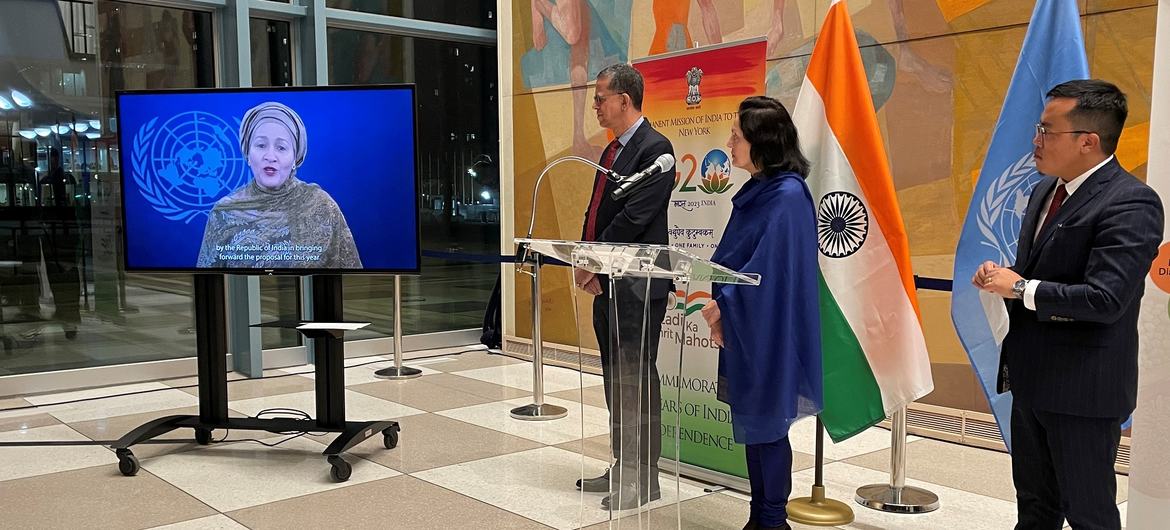They are climate resilient, tolerant of poor soils, drought and harsh growing conditions, and are adaptable to different production environments, without high fertilizer and pesticide needs. “However, millet-based products, carefully crafted and combined with other ingredients, can bring taste and value to almost every world cuisine today.” “Millets are more than just foods. They are smart foods.” Recognizing their wide-ranging benefits, the UN General Assembly at its 75th session in March 2021 declared 2023 the International Year of Millets. “The international year of millets provides an opportunity to highlight how the sustainable production, processing, marketing, and consumption of millets can contribute to alleviating hunger,” said Ms. Mohammed, stressing that it can also “help us move forward on all areas of the 2030 agenda for sustainable development.” “From flours to cookies to pizzas, pastas, muffins, cakes, breakfast cereals, smoothies and so on.”
Rooted in ancient traditions
Against the backdrop of the ever-growing global population that needs sufficient and healthy food, rising climate risks and depleting natural resources, Ms. Kamboj particularly underscored their importance and relevance in the face of crises and challenges surrounding food security and nutrition today. UN Deputy Secretary-General Amina Mohammed delivers her video remarks at the exhibition launch event as Ambassador Ruchira Kamboj, Permanent Representative of India to the UN looks on. Different varieties of millet grains are on display at the exhibition.

In a video message for the event, UN Deputy Secretary-General Amina Mohammed underscored that millets are rich in heritage and full of potential.
In a video message for the event, UN Deputy Secretary-General Amina Mohammed underscored that millets are rich in heritage and full of potential.
Millets were among the first plants to be domesticated and serve as a traditional staple crop for millions of farmers in dry zones of Asia and Africa, with India being the top producer followed by Nigeria, Niger and China.